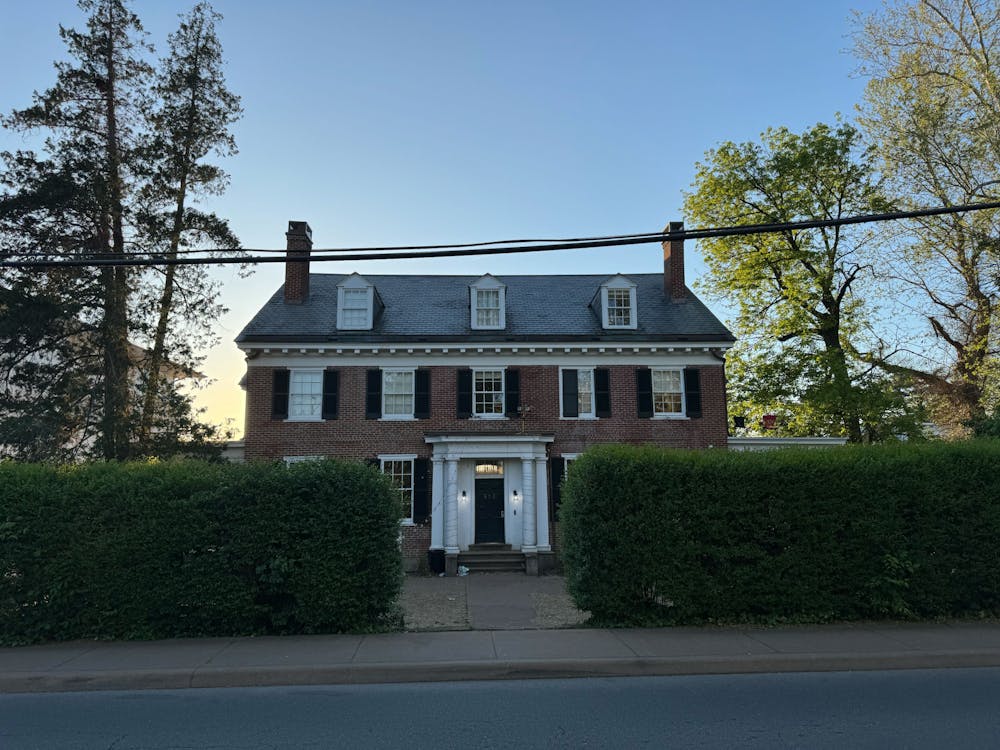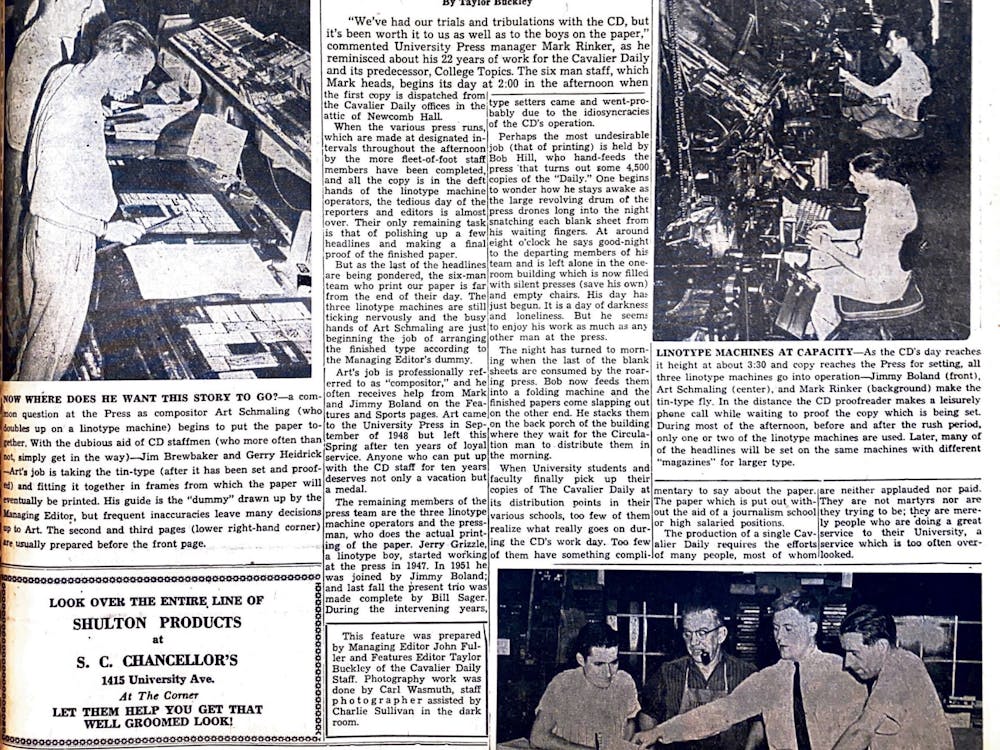Allegations of a possible relationship between Thomas Jefferson and Sally Hemings are rooted in a centuries-old rumor first spread in 1802 by James T. Callendar, a journalist who had been turned down by Jefferson for a political appointment. Callendar claimed Jefferson had kept a slave named Sally as his "concubine" and fathered her children. Debates over the validity of these claims have raged for years, but recent research has examined more closely the possibility that the allegations were unfounded.
Many researchers and members of the University community dedicate time and resources to shed more light on the topic and generate discussion about this issue.
Controversial Science
The Sally Hemings controversy erupted in 1998, when a DNA test conducted by Dr. Eugene Foster explored the paternity allegations. Foster tested descendents of Thomas Jefferson's uncle and Eston Hemings, Sally Hemings son, whom many believe to have been fathered by Jefferson.
According to Monticello Director of Archaeology Fraser Neiman, while the tests showed a connection between Jefferson's uncle and Eston Hemings, these results do not necessarily prove that Jefferson was Eston's father.
"The [DNA] evidence really only shows us that one of Hemings' kids was a carrier of the Jefferson line," Neiman said.
Foster also tested descendents of Jefferson's sister Martha Jefferson Carr's family. Jefferson's defenders claim the Carrs were the ones related to the Hemings children.
According to Annette Gordon-Reed, professor of law at New York University and author of "Thomas Jefferson and Sally Hemings: An American Controversy," the DNA tests showed no match between the Hemings and Carr families.
"The problem is that Jefferson's family could not have known that there would one day come a time when you could differentiate between paternal and maternal relatives," Gordon-Reed said. "On both sides, white and black, that's the problem with oral history -- it has to hook up with something from contemporary time."
The DNA results led to a number of independent studies, including one conducted in 2000 by the Research Committee on Thomas Jefferson and Sally Hemings, run by the Thomas Jefferson Foundation.
According to Lucia "Cinder" Stanton, Shannon Senior Historian at Monticello, the purpose of the committee was to survey relevant scientific and historical evidence and to draw a conclusion. The committee determined there was a high probability that Jefferson was the father of at least one of Sally Hemings' children, and possibly the father of all of them.
Debate Continues
Several researchers, including Charlottesville genealogist Cynthia Burton and Robert Turner, an associate director at the Law School and a member of the Jefferson-Hemings Scholars Commission, have rejected allegations of a relationship between Jefferson and Hemings.
Turner, who is currently writing a book about the Jefferson-Hemings relationship, cited age difference between Jefferson and Hemings as one reason why these allegations are unfounded. According to Turner, Hemings was 14 years old when she went to Paris to work for Jefferson, and Jefferson was 64 years old during one of Hemings' conception periods.
Burton, whose book "Jefferson Vindicated" was published in 2006, also noted Jefferson's age.
"Jefferson's health has been completely overlooked," she said. "His fertility had been waning for over 30 years at this time."
Burton noted the possibility that Hemings' children were fathered by Randolph Jefferson, Thomas Jefferson's brother.
"Other analyses that I had read, they kind of overlooked Randolph Jefferson", she said. "That was kind of shocking to me."
According to Turner, Randolph Jefferson fathered children by his own slaves, and reportedly spent time with slaves at Monticello.
Gordon-Reed disputed the theory that Randolph fathered Hemings' children.
"It sounds desperate," she said. "It's really not a matter of them having evidence that it's Randolph. It's a matter of putting in the public mind that there could be someone out there" other than Jefferson.
According to Neiman, it has been established that Jefferson was at Monticello nine months before the births of all of Hemings' children.
Neiman developed a statistical model to test the probability that this was a result of random chance. The results, he said, showed that the probability was about one to two percent.
"We're left with the question of what exactly is the causal connection," he said. "The simplest one is that he was the father of all her kids."
David Douglas, accelerator physicist at the Jefferson Lab's Center for Advanced Studies of Accelerator, who was hired to study the accuracy of Neiman's simulation, said it contained technical problems.
"The simulation assumed that every conception occurred exactly 275 days before birth," Douglas said. "We don't know that the conception period was right and in fact we don't know that the span of the pregnancy was correct at all."
For some, the evidence for Jefferson's paternity still outweighs evidence against it.
"I just can't imagine why anyone would bother to deny it at this point," said History Prof. Peter Onuf. "The argument is so overwhelming that we need to move on to other more fruitful sites of inquiry."
Turner said he was initially hesitant to participate in the Jefferson-Hemings Scholars Commission, composed of researchers focusing on the issue, because he was concerned about the responses he would receive from his colleagues.
"I didn't want to do it because I assumed ... I was going to be called a racist," Turner said.
Burton said she has seen a range of reactions to her work.
"I have had a lot of feedback, positive and negative, and it's just amazing the emotions it brings out in people," Burton said.
A Man of Honor?
Researchers on both sides of this debate expressed admiration for Jefferson, although they disagreed on whether the allegations would indicate a serious character flaw.
Burton said she was troubled by the fact that Jefferson had denied allegations of a sexual relationship with Hemings.
"For me that reflected on his moral character," she said.
Onuf said Jefferson can still be considered a respected historical figure even if the allegations are true.
"This is not the crucial test for Jefferson," he said.
Gordon-Reed also questioned the weight put on the possibility of a relationship between Hemings and Jefferson, noting that records of his part in the slave trade are more troubling to her than what may have happened with Hemings.
"The [biggest] problem with Jefferson is that he was a slave owner," she said.
For Turner, suggestions of a sexual relationship between Jefferson and Hemings are more serious than the fact that he owned slaves because of Jefferson's relatively progressive politics and Hemings' young age at the time the relationship would have occurred, as well as the fact that she did not have any legal protection governing her right to consent.
Researchers in support of both sides also emphasized that it is impossible to definitively know the truth about what happened.
"All hypotheses in science are open to revision," Neiman said.
Turner echoed this sentiment, noting the lack of information available about Hemings herself.
"The irony is, we know almost nothing about Sally Hemings," he said. "The biggest thing we know is that we don't know much."
Hemings' Presence at the University
Several University student organizations have publicly addressed the controversy, as well as the presence of the history of slavery at the University.
One such group, the Committee on Jeffersonian Traditions, is a student-run organization that has posted flyers around Grounds that say "Tommy [heart] Sally" and "Virginia is for Lovers," both including images of Jefferson and a representation of Hemings. According to the group's public liaison, the organization's goal is to promote discussion both in class and among students about the controversy.
According to Maggie Byrne, diversity chair of the University Guide Service, tour guides are open about the fact that Jefferson owned slaves.
She added that, while she does not introduce the subject of Hemings in her tours, she is willing to answer questions about the controversy. She noted, however, that each tour guide's tour is different.
Byrne said a typical answer to a question about whether Jefferson and Hemings had a relationship might be "that it's socially believed that, yes, there's enough evidence to indicate that they had a relationship that produced at least one child but that tracing can never be entirely accurate."
According to Byrne, tours adapt to new historical information as it is available.
"We want to be as historically accurate as we possibly can and also as honest and candid and sensitive as we possibly can," she said.




